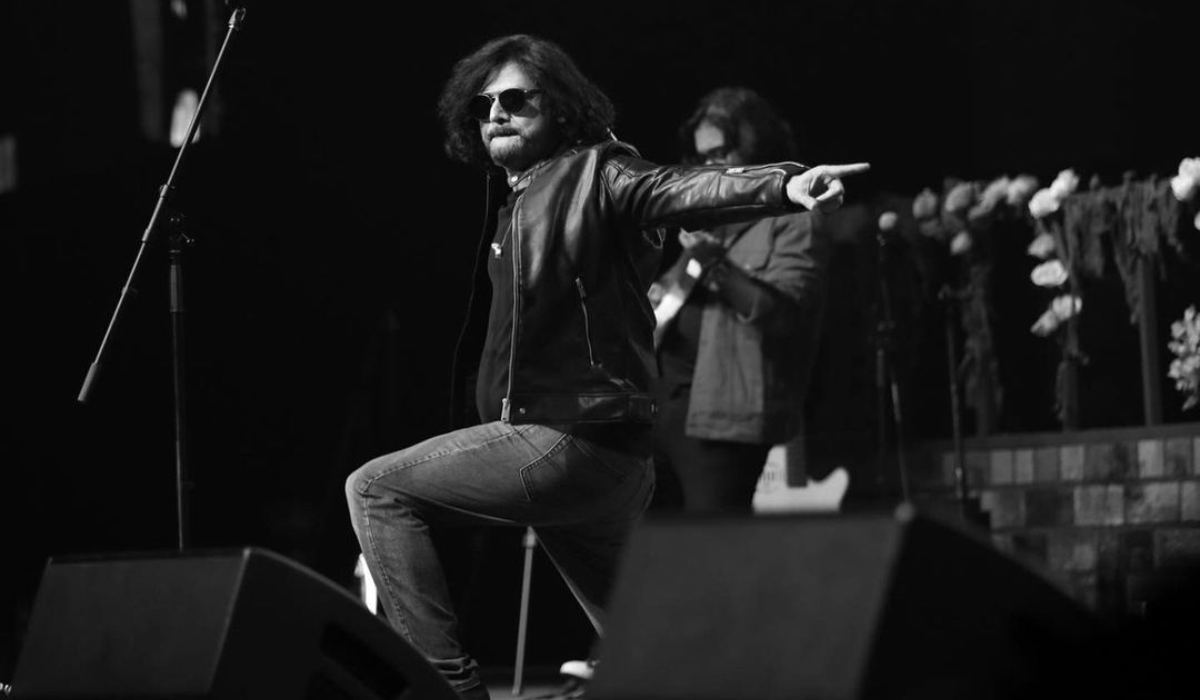
For over three decades, Faisal Kapadia ruled hearts whilst being an integral part of Strings, a band that not only defined but also revolutionised pop music in Pakistan and beyond. Alongside his bandmate Bilal Maqsood, the duo crafted melodies that resonated with audiences across borders, earning them a dedicated fanbase and critical acclaim.
Following the band's breakup, Kapadia began his solo journey with his album Zindagi Jahan Le Jaaye, marking a new chapter in his illustrious career. In a recent interview with Khaleej Times by Sadiq Saleem, the musical icon shared insights into his journey and the inspiration behind his solo endeavour.
When asked about digital measures of engagement - such as the number of downloads, likes, and shares - defining success, Kapadia responded, "The world has changed and so have the methods. Top 100 Billboard charts were the gold standard before. While these metrics offer a glimpse into a song's immediate impact, I believe they don't fully capture the slow organic success because music has this unique ability to evolve and deepen its connection with listeners over time. For me personally, if my music touches the lives of those who listen to it; if my work can find a special place in someone's heart or become a part of their life's soundtrack, then I've succeeded."
Toying with the idea of inspiration and discussing creative blocks, the singer remarked, "Surrounded by inspiration, from internal ideas to external observations, and with a wealth of existing music to draw from, I rarely encounter creative blocks. Sometimes, a single line, word, melody, note, or instrument can spark inspiration. In today's vibrant world, there's always something to fuel creativity, you just need to be an avid observer."
The musical maestro also detailed his process. He shared, "Whether I'm with my instrument or just humming along to the rhythm in my head, tunes tend to emerge almost effortlessly. It's the magic of being a composer, I suppose. However, the real challenge lies in choosing which tunes to develop further. It's a bit of a dance, really—sometimes you step in perfect time, selecting the tune that resonates deeply, and other times, you might miss a beat, choosing one that doesn't quite fit. But that's the beauty of music; it's not about right or wrong. It's about being true to yourself, pouring your heart into the melody. And just like that, with a dash of honesty, a song comes to life."
Kapadia also did not hesitate to speak about the unfortunate practice of Pakistani songs being lifted without being given due credit. He said, "In the past, there were numerous instances where songs were used without proper attribution. However, in today's digital age, it has become significantly harder to borrow a song without giving credit. Digital platforms such as YouTube employ software to detect borrowed compositions. People are now legally obtaining rights to redo a song. For example, the song Pasoori from Coke Studio was re-recorded by T-Series, but only after they had acquired the necessary license."
When queried about being engulfed by noise and gravitating towards silence, Kapadia poignantly revealed, "We all crave (silence), don't we? In the midst of noise, finding clarity and focus becomes a challenge. Silence, on the other hand, offers us the space and chance not only to disconnect from the immediate distractions but also to dive deeper and reflect. Given the nature of our work, where we're either performing in front of an audience or lost in music through our earbuds, silence becomes a precious commodity in our lives."
Opening up about his album, the musician also spoke about his various collaborations, shedding light on particular tracks. "Dheema Dheema is a personal favourite," he shared. "Basically, it is the highlight of this album. Initially, I was inclined to name this album Dheema Dheema but then I felt Zindagi Jahan Le Jaaye feels more appropriate. Aankh Mori is a raag-based song and I always wanted to work in this raag and I experimented it with modernity so it is relevant in today’s time. I had a great time working with my co-artists Zohan and Amna Rai. They were just amazing. I also worked on La Takhoun with Krystel Dib from Lebanon and on Hum Na Rahay with Zoha Zuberi and had a great time collaborating with these amazing artists. There's always so much you can learn through collaborations."
The singer further shed light on the ways in which artists can nurture their skills. "I think today's generation is benefiting a lot more than before," he stated. "Earlier, there were just a few Ustaads around us but today we have unlimited coaching and information available online. Whether you are interested in classical music or Western classical, rock or jazz, it's all out there. People who have the will and dedication to learn, will find the way to brush their skills."
The talented performer spoke about living in Dubai as well. "Dubai is very close to Karachi. It’s like you are living in Lahore or Islamabad. All my life I’ve lived in Karachi so it’s a two-hour flight. And in today’s digital era, even if you are in the same city, sometimes you don’t meet and get your job done virtually. Back in 2003, Hariharan Sahab contributed his vocals from Mumbai to our track Bolo Bolo via a wave file. Two decades later, technology has advanced so much that distance hardly feels like a barrier. Additionally, living in Dubai offers unparalleled security, making it a wonderful place to be."
As Kapadia continues to captivate audiences with his soul-stirring melodies and timeless lyrics, his legacy as a musical pioneer and visionary remains firmly etched in the halls of Pakistani music history. With each note he sings, the artist reaffirms his status as a true icon of the industry.
Have something to add? Share it in the comments





1719921789-0/dua-lipa-(1)1719921789-0-270x192.webp)











COMMENTS
Comments are moderated and generally will be posted if they are on-topic and not abusive.
For more information, please see our Comments FAQ